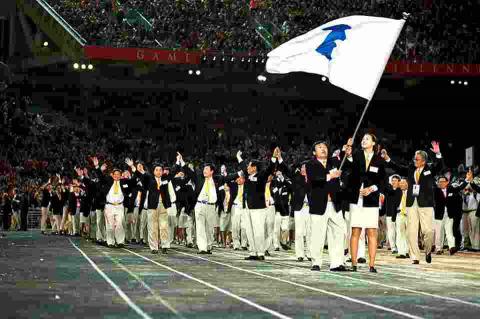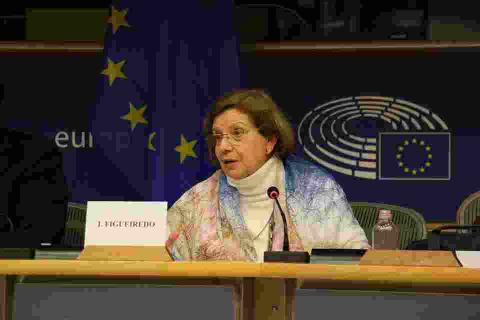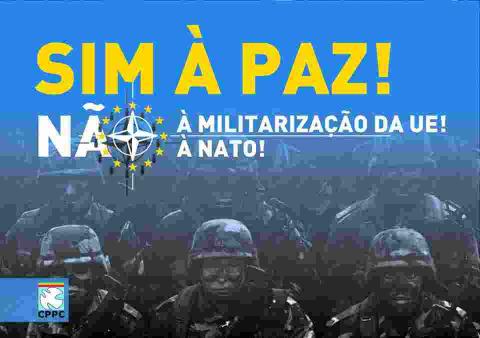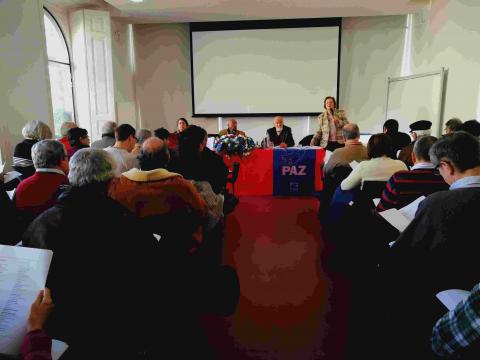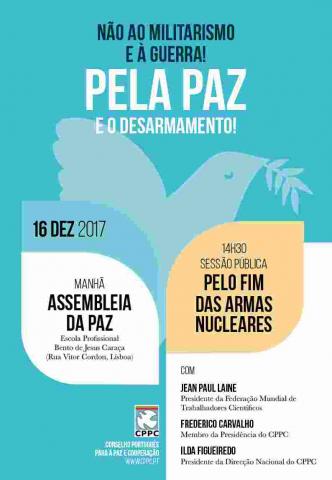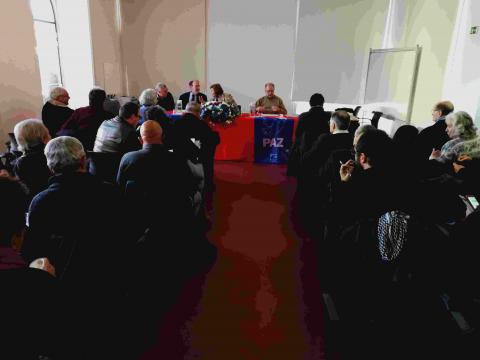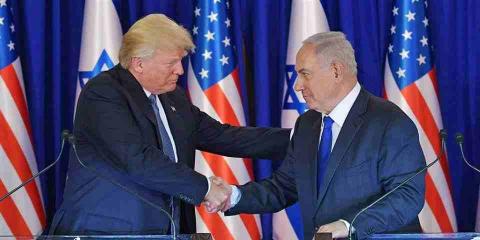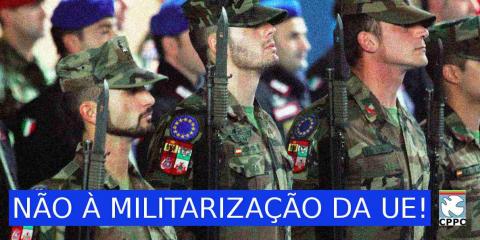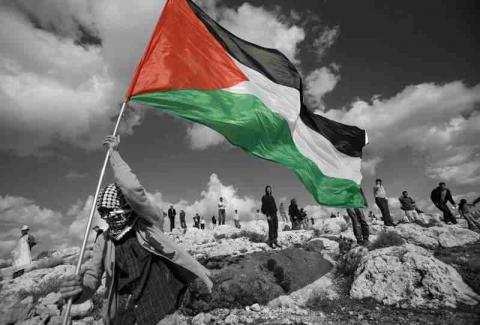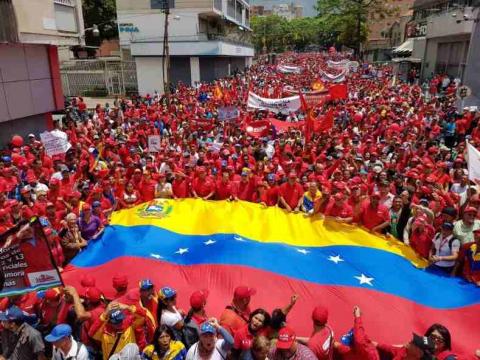CPPC has always considered that the problems of the Korean people would have to be resolved by the Korean people, without foreign interference. The events of the past week confirm this. After a period of particular military tension in the region, both parts of Korea restarted a dialogue, long interrupted, and maintain open communication on matters of common interest. The Winter Olympic Games are only the most visible aspect.
Portuguese Council for Peace and Cooperation
CPPC
The President of the National Leadership of the Portuguese Council for Peace and Cooperation (CPPC), Ilda Figueiredo, represented CPPC in a conference held in Brussels on the Treaty on the Prohibition of Nuclear Weapons, promoted by the Confederal Group of the European United Left - Nordic Green Left (GUE/NGL).
The end of nuclear weapons and massive destruction, and general, simultaneous and controlled disarmament were reaffirmed as fundamental conditions towards ensuring peace and safety in the world.
Intervention by Ilda Figueiredo
It is with great concern that the Portuguese Council for Peace and Cooperation faces the ongoing deepening of the militarization process of the European Union (EU). Militarism is, together with the curtailment of State sovereignty by supranational institutions dominated by the big powers and the promotion of neoliberal policies, who attack economic and social rights, one of the pillars of the EU — the creation of a future European army, despite the persisting contradictions, is an objective long pursued by the major European powers.
The Portuguese Council for Peace and Cooperation held, on December 16th, in Lisbon, its Peace Assembly, which determined the action priorities and the CPPC bodies for the next two years. Ilda Figueiredo was re-elected as president of the National Leadership.
The Portuguese Council for Peace and Cooperation (CPPC), organized in Lisbon, the seminar “For an End of Nuclear Weapons”. The seminar had the participation of Jean-Paul Lainé, president of the World Federation of Scientific Workers, of Frederico Carvalho, physicist and member of CPPC’s Presidency and CPPC’s Chairperson Ilda Figueiredo. This seminar was held within the framework of CPPC’s campaign for Portugal’s signature to the Treaty on the Prohibition of Nuclear Weapons, that also comprises a petition to the Portuguese Authorities.
The Portuguese Council for Peace and Cooperation (CPPC) divulges Frederico Carvalho’s address to the seminar “For an End to Nuclear Weapons”, promoted within the framework of CPPC’s campaign for Portugal’s subscription to the Treaty on the Prohibition of Nuclear Weapons.
WAR AND PEACE: A NEW LOOK
The Portuguese Council for Peace and Cooperation (CPPC) firmly condemns the US recognition of Jerusalem as the capital of Israel and the announced intention to transfer the US embassy to this city, a decision that entails an authentic act of aggression upon the Palestinian people, with unpredictable and dangerous consequences for peace in the whole region.
It is with great concern that the Portuguese Council for Peace and Cooperation (CPPC) sees the currently ongoing enhancement of the process of militarization of the European Union (EU). Militarism is, along with the curtailment of the sovereignty of States by supranational institutions dominated by the great powers and the promotion of neoliberal policies, which attack economic and social rights, one of the cornerstones of the EU - the creation of a future European army, despite persisting contradictions, being a goal long pursued by the major European powers.
Today, November 29, marks the International Day of Solidarity with the Palestinian People, designated by the UN.
This date marks the adoption, exactly 70 years ago, by the United Nations General Assembly of Resolution 181, which called for the division of Palestine into two states, one Arab and one Jewish, the first being constituted by 44% of the territory and the second by 55%; Jerusalem and Bethlehem would remain international zones.
The Portuguese Council for Peace and Cooperation (CPPC) condemns the sanctions against Venezuela adopted by the European Union this past 13th and denounces them as a gross violation of International Law and an act of interference whose only aim seeks to worsen the political, economic and social situation in that country.

